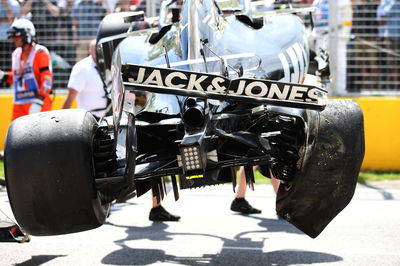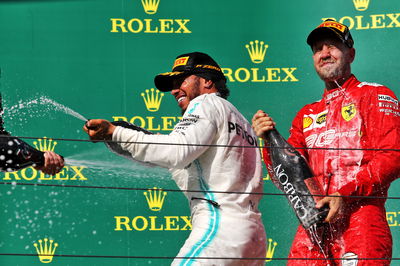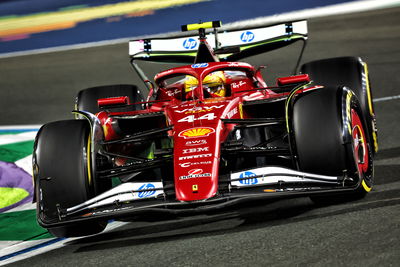Why spare parts is “a real headache” for F1 teams in 2020
An unprecedented and brutal run of eight races in just 10 weeks has left Formula 1 teams with real concerns they could run out of spare parts when the 2020 season begins.
After the COVID-19 pandemic ravaged the original schedule and forced the postponement or cancellation of the opening 10 races, the delayed 2020 season will finally get underway with the Austrian Grand Prix on July 5.
Two triple-header events in seven weeks presents an intense and unique challenge for the teams and drivers.
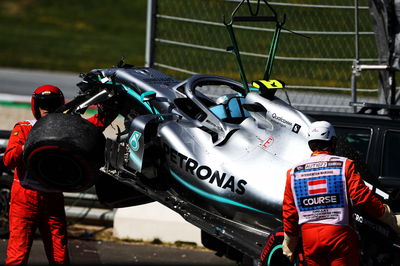
An unprecedented and brutal run of eight races in just 10 weeks has left Formula 1 teams with real concerns they could run out of spare parts when the 2020 season begins.
After the COVID-19 pandemic ravaged the original schedule and forced the postponement or cancellation of the opening 10 races, the delayed 2020 season will finally get underway with the Austrian Grand Prix on July 5.
Two triple-header events in seven weeks presents an intense and unique challenge for the teams and drivers.
After back-to-back races at the Red Bull Ring and the Hungarian Grand Prix directly afterwards, a rare weekend off will follow, before the paddock descends on Silverstone for a second double-header and then travels to Barcelona for the Spanish Grand Prix on August 16.
With the two additional two rounds which complete the revised European leg of the campaign in Belgium and Italy, there will be just two weekends without a grand prix in the 10-week spell between July 5 and September 6. Expect a similar pattern to follow when the remainder of the calendar is finalised.
A second race in Italy - possibly at Mugello or Imola - after the Monza round in early September has been mooted and if arranged, it would form the third triple header at the start of the season.
Even if the extra triple header does not come off, F1 will still stage the most races it has ever held in such a short timeframe. With such a congested schedule, teams are naturally worried about a strain on resources.
Among the biggest concerns is the risk of running out of spare parts if their cars are damaged in multiple incidents.
“This does present a unique challenge for us, because if you have two races, you’ll go to a race and have some spare parts,” Mercedes chief operating officer Rob Thomas explains in an in-house video.
“If you have an issue in the first race you can normally manage the second race because you’ve got your spares.
“Add a third race to that, and all of a sudden you’ve run out of spares for the third race.
“This presents a real headache for the factory in how do we make sure the guys at the circuit have enough parts.”
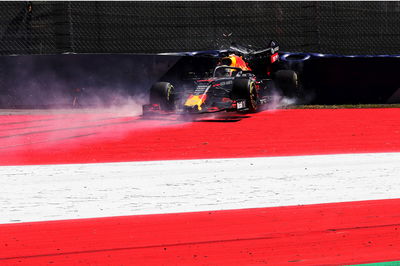
Due to their factories observing a 63-day mandatory shutdown period amid the coronavirus outbreak, teams have had little time to build stockpiles of spares for their cars.
In the weeks leading up to the opening flurry of events, the reigning world champion Mercedes squad is currently in the process of checking its stock of spare parts and evaluating which approach is best going forwards.
Two races at the Red Bull Ring could exacerbate the spare parts dilemma, given the Spielberg track features high ‘sausage kerbs’ at several corners which have been the subject of controversy after causing damage to cars at past events.
For the smaller teams, the pain of picking up incident damage will be doubled given their respective budgets compared to the leading outfits, but in such circumstances, the cost will be felt by all.
Thomas said there is a balance to be struck to ensure that teams are not being wasteful with their resources and suggested Mercedes will partially-build the parts most at risk of damage so they can be turned around quickly if needed.
“We can look to have lots of spares but it’s really expensive and we don’t want to be wasteful, we need to be efficient,” Thomas said. “So, it’s a bit of a judgement call.
“What we’ll look to do is [identify] what part generally would get damaged or worn in the race and make sure we’ve got them at a point in their manufacturing where we can turn them around quickly.
“We’ll half-make them or three-quarter make them depending on what the parts are and react when it comes to it. Our whole factory is built around speed and flexibility and making sure we can react.
“The fortunate thing is we’re used to doing this, so if we get an issue we can generally turn things around in very quick time.
“We know we’re going to be flat out for the next six months,” he added. “Making sure these systems are in the prime condition in readiness for that is really important.”
